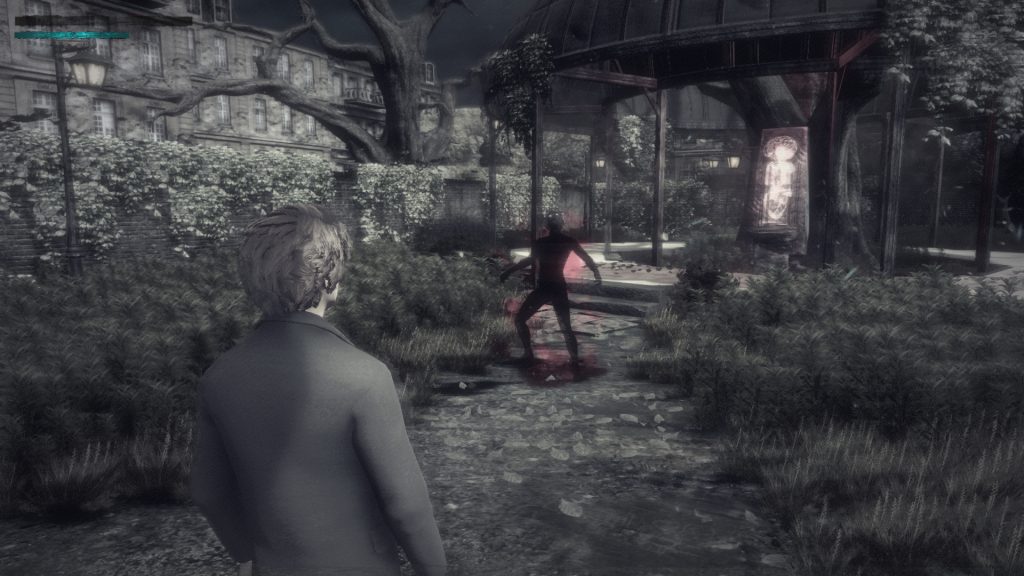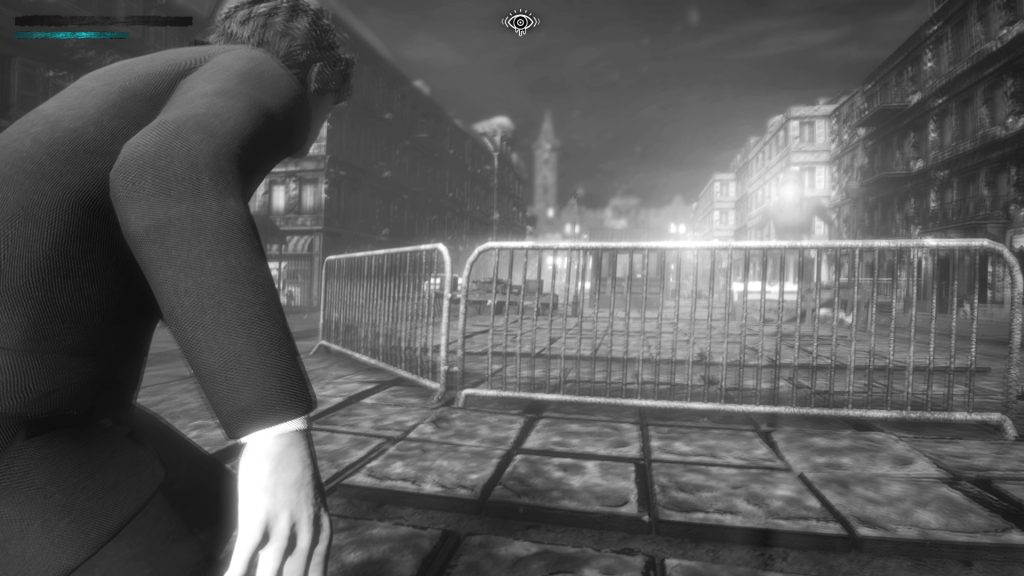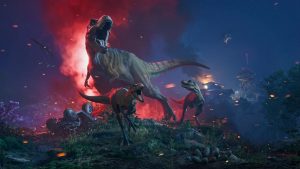
The Piano is a game that started off as a solo debut project for a passionate developer. The game has already been in development for five years and it’s finally set to release this year. The Piano promises a deep and personal story with elements of horror and it’s about the story of a man called John Barnerway who is struggling with his mental illness.
To learn more about the game and its development, Gamingbolt reached out to the game’s Creator Jonathan Stemmildt and its Producer Lewis Denby, and both of them together have provided answers to our questions.
"There were many obstacles in the way and game development is not something that anyone should underestimate – it’s been frustrating and demoralising at times – but now here we are, and the result is exactly how I imagined it to be."
This is a game that has been five years in the development. How was the journey been so far?
Jonathan Stemmildt: So I actually started working on The Piano just for fun, because I wanted to learn game development and couldn’t afford to spend money on an expensive private scholarship. And I love working on creative projects just out of passion. So it was a really nice learning through experience. It felt almost romantic from time to time. It got really nostalgic and reminded me of the days, back in the day, when I used to create custom Warcraft 3 maps.
This was my first attempt at a major project, though, and I feel very proud that I’ve managed to achieve that. It’s always been my dream to become a game developer. And I really mean that. This was my life’s goal, my only dream. There were many obstacles in the way and game development is not something that anyone should underestimate – it’s been frustrating and demoralising at times – but now here we are, and the result is exactly how I imagined it to be. It’s all still a bit unreal, but right now it feels so rewarding. You could really say it was also a personal journey – overcoming self-doubt and realising what I am capable of.
What can you tell us about the story in this game?
Jonathan Stemmildt: The Piano is set in 1940s Paris and tells the story of John Barnerway as he tries to come to terms with the deaths of his three brothers. I really don’t want to spoil too much. The story is very focused on the protagonist and the mystery around his brothers’ deaths.
Lewis Denby: I can’t think of many horror games that have such a rich, personal story that’s so central to how the game plays out. The world and characters Jonathan has created are really superb, and I’m excited to see how people respond to them. It’s difficult to talk about the game’s central themes without straying into spoiler territory, but I think people will be surprised at some of the places Jonathan goes in the story. It’s a really candid, personal, and brave story for a game to tell, and a real subversion of horror norms.
Were there any particular challenges you faced during this game’s development?
Jonathan Stemmildt: Game dev can be a real struggle. But that’s part of the fun in my eyes. The first day I opened Unity3D to look at it – back in 2010 – I remember it very clearly, I opened and just stared at the screen for a couple of minutes and trying to figure out how anything worked. Then I closed Unity and deleted the program feeling very frustrated and overwhelmed! And this feeling of being overwhelmed by obstacles stayed during the whole of development. One of the main things I’ve learned while working on The Piano is that the frustration is just part of the process.
Lewis Denby: At this stage, I think our main challenges are just those that come with actually finishing and shipping a game. One week we’ll sit down and play through a build and it’s like, “Yeah! We’re almost there!” and then the next week we tweak something and it breaks a hundred other things. But I’ve worked on a lot of games and, like Jonathan says, that’s just game dev is like. The final stretch is almost always the most frustrating. But it’s great to see it all starting to come together.
There are a lot of horror games out there vying for gamers’ attention. What would you says sets apart The Piano?
Lewis Denby: When I first came across The Piano a couple of years ago, when Jonathan had already been working on it for three years, the first thing that struck me was the thick, oppressive atmosphere. I’m a big fan of unusual indie horror games like Pathologic, which perhaps aren’t the most polished in the usual ‘triple-A graphics’ sense, but whose overall style gives them a really unique personality. The Piano was immediately one of those games for me — and I’d hope that’s the big thing other people will pick up on too. There’s no gore, and the game is light on jump scares, but it’s constantly unsettling, dark and melancholy — an emotion that’s too often missing from horror, if you ask me.
Jonathan Stemmildt: The thing is, The Piano at its core is not a horror game. It is a story-driven game with horror elements. I didn’t want to create a game with jump scares without any reason behind them. I was so resistant to it that it got to the point where people said to me, ‘you need to add more horror elements!’ because everything was so focused on narrative and atmosphere. I think we compromised on a good balance. There are too many games out there that are basically just jumpscares.exe. And jump scares don’t make a game unique. In fact, every jump scare is basically the same. But what can make a game unique are its atmosphere, game mechanics and story – and that’s what I wanted to focus on with The Piano.
What are some of the inspirations that led to the creation of this game?
Jonathan Stemmildt: I remember playing Alan Wake, Silent Hills and Amnesia — to name a few — and I loved playing these twisted games that challenged the player’s mind. And I suppose I dared to dream of creating something similar. Weirdly enough, the actual start for me using Unity was the project ‘A Slower Speed of Light’ by MIT Game Lab. (http://gamelab.mit.edu/games/a-slower-speed-of-light/) I remember recording it on my old German youtube channel… don’t even try to find these videos – I killed them with fire and nobody will ever find them. But it got me to Unity and then this crazy ride began.
"If you want a simple answer I would say the narrative is the most important element here. It’s definitely the focus of the game."
What would you say contributed to a delay in the game’s release?
Lewis Denby: I think we’re in a really strong position in that we haven’t had to rush the game out. We have no publisher and no external investors so there’s no one banging on the door each week and demanding a release date. That said, I think Jonathan and I have kept each other on our toes over the past couple of years. Initially it was Jonathan pushing for more time… then it was me… then Jonathan again… I think it’s been a good sense-check for both of us, though, and we’re now really confident in what we’re putting together and when it’ll all be done!
After having worked so long on the game, is it exactly what you hoped it would be, or are there still some minor changes you wish you could make?
Jonathan Stemmildt: It’s more than I imagined creating when I started it. I don’t want to brag, but think it’s a great debut project. I feel like this is a good start. So nope, no changes for me. I am really proud of the outcome.
Lewis Denby: I think for me… I mean, there are always things I’d change. I’ve never shipped something and thought ‘that game is perfect’. And, you know, The Piano is a low-budget indie game — there’s no getting around that. That said, when I look at The Piano now, it’s very close to the game I imagined it could be when I first started working with Jonathan back in 2016 — one filled with character and atmosphere, despite its humble origins. And that’s testament to Jonathan’s work, not mine — he’s been able to really turn his vision into reality, which is a fabulous thing to see.
Would you say that this is a game that is primarily focused on narrative, or is gameplay equally important?
Jonathan Stemmildt: If you want a simple answer I would say the narrative is the most important element here. It’s definitely the focus of the game.
Lewis Denby: For me, the most memorable games are those that fuse the two into an experience that couldn’t exist in any other format. In The Piano, you’re really diving into a story, finding and putting together clues, in a type of world that couldn’t exist outside of games. I don’t want to say too much. But I do think that’s one of the game’s strongest suits.
Are there plans to bring the game over to other platforms such as PS4, Xbox One, and Nintendo Switch?
Lewis Denby: Plans? No. Desires? Of course. We’d love to take The Piano multiplatform if the demand is there, but we’re taking this one step at a time. It’s Mistaken Visions’ first game. We need to finish up the PC version first. Then we’ll look around, and assess the lay of the land.
Is there anything more you’d like to tell our readers?
Jonathan Stemmildt: I suppose the only thing I’d add is that I couldn’t imagine ever succeeding as a game developer when I started the project five years ago. There were many reasons for that, but in one word: depression. Looking back now I really feel almost stupid that I ever doubted myself, and I’ve had incredible support from my family, friends and especially my girlfriend. So this I really want to add. It doesn’t have to do anything with The Piano, rather me as a developer. But it doesn’t get said often enough.
For anyone out there struggling and thinking of becoming a game developer or creating game art or whatever dream you might have: you may think that you cannot do it, that you are not worthy or not enough for that, and that it is too much for you. I thought the same thing, I had these thoughts running through my mind my entire life, and I finally realised that these thoughts are completely false. So this comes from someone who struggled with depression, suicidal thoughts, self-doubt, self-harm and general cynicism, and from the bottom of my heart: anyone can fight for their dream and succeed. Do not underestimate yourself. And I hope someone reads this and feels a little more empowered to live for their dream, because I am sure you are worth it.
















